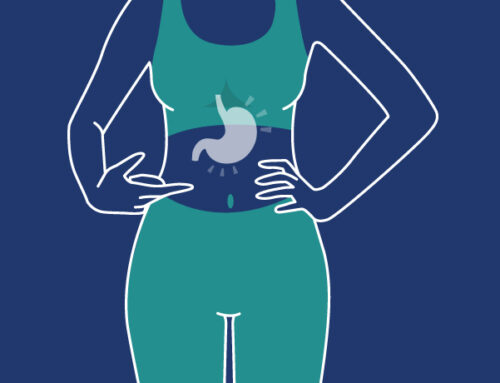Imagine your body as a symphony orchestra. Every instrument has its role to play, and when they’re all in harmony, the result is a beautiful concerto of health and vitality. However, if just one instrument—like our hormones—is out of tune, it can disrupt the entire performance. In reality, hormonal imbalances are like an orchestra playing out of sync, leading to a myriad of health issues that we often struggle to pin down. Today, we delve into the complex world of hormones – understanding their crucial role in our bodily functions, identifying the common causes and telltale signs of imbalance, and, importantly, outlining some effective solutions to restore your body’s optimal harmony.
Hormonal imbalances can occur due to various reasons, including underlying medical conditions such as diabetes, thyroid disorders, polycystic ovary syndrome (PCOS), and pituitary tumors. Lifestyle factors like stress, unhealthy diet, and lack of physical activity can also contribute to hormonal imbalances. Environmental factors such as exposure to toxins and pollutants may also disrupt the delicate balance of hormones in the body. In some cases, hormonal imbalances can even be caused by genetic factors. It’s important to consult with a healthcare provider for a proper diagnosis if you suspect that you may be experiencing a hormonal imbalance.
Identifying Symptoms of Hormonal Imbalance
Hormonal imbalances can manifest in various ways, affecting both physical and emotional well-being. It’s important to be aware of the common symptoms associated with hormonal imbalances so that proper diagnosis and treatment can be sought. Let’s look at some of these symptoms, starting with the physical disturbances.
- Hormonal imbalances can lead to physical and emotional problems, and it is crucial to identify the common symptoms associated with these imbalances. Seeking proper diagnosis and treatment can alleviate the negative effects of hormonal imbalances.
Physical Disturbances
One significant indication of a hormonal imbalance in women is weight gain that occurs without any changes in diet or exercise habits. This weight gain can often be concentrated around the abdomen and hips, leading to an altered body shape. Individuals may also experience difficulty losing weight despite their best efforts.
Unexplained Weight Gain
For instance, Emily maintained a healthy weight through regular exercise and balanced eating. However, in recent months, she noticed unexplained weight gain around her midsection despite maintaining her routine diligently. It was only after consulting her doctor that she discovered it was due to a hormonal imbalance that needed addressing.
Learn More: 6 Signs You Need Probiotics
Persistent Fatigue
Another common physical symptom is fatigue or low energy levels that persist even after adequate rest. Hormonal imbalances disrupt the body’s energy regulation mechanisms, leaving individuals feeling constantly tired and devoid of enthusiasm.
Menstrual Irregularities
Menstrual irregularities such as heavy bleeding, prolonged periods, or missed cycles can also indicate an underlying hormonal imbalance. These disruptions in the menstrual cycle are often accompanied by intense cramping and discomfort.
Appetite and Food Cravings
In some cases, hormonal imbalances can also lead to changes in appetite and food cravings. Some individuals may experience an increased desire for sugary or fatty foods due to hormonal fluctuations.
Now that we have explored some physical disturbances associated with hormonal imbalances let’s delve into the emotional shifts that individuals might experience.
Emotional Shifts
Hormonal imbalances can cause a myriad of emotional shifts and mood swings in individuals. These changes are often the result of fluctuating hormone levels that affect neurotransmitters in the brain, leading to alterations in mood, behavior, and overall mental well-being. It is important to recognize these emotional shifts as potential symptoms of hormonal imbalance, as they can have a significant impact on one’s quality of life.
Fluctuating Emotions
Imagine waking up feeling energetic and motivated one day, only to find yourself overwhelmed with anxiety and irritability the next. This rollercoaster of emotions can be incredibly challenging to navigate and may leave you confused or frustrated.
Intense Mood Swings
One common emotional shift experienced by many is intense mood swings. Hormones such as estrogen and progesterone play vital roles in regulating mood, and any disruption in their balance can result in sudden emotional highs and lows. One moment, you may find yourself bursting with joy, and the next minute, you could feel overwhelmed with sadness or anger.
Learn More: Purple Period Blood Explained
Depression
Depression is another emotional manifestation often associated with hormonal imbalances. Fluctuations in hormones can impact the production and function of serotonin, a neurotransmitter responsible for regulating mood. When serotonin levels become imbalanced, it can lead to feelings of sadness, hopelessness, and a lack of interest or pleasure in activities once enjoyed.
Anxiety
In addition to mood swings and depression, anxiety is another emotional shift commonly observed in individuals with hormonal imbalances. Hormones such as cortisol, the “stress hormone,” are significant in maintaining emotional well-being. When cortisol levels are dysregulated due to hormonal imbalances, individuals may experience heightened anxiety and an increased sensitivity to stressors.
It is crucial to understand that these emotional shifts are not solely caused by external factors or personal weaknesses but rather have a biological basis rooted in hormone fluctuations. Recognizing these shifts as potential symptoms of hormonal imbalance is the first step toward seeking appropriate treatment and support.
Learn More: How Leaky Gut Syndrome Contributes to Weight Gain?
Reasons Behind Hormonal Imbalance
Hormones are delicate chemicals that orchestrate various functions within our bodies. However, several factors can disrupt the delicate balance of hormones, leading to hormonal imbalances in both men and women. Understanding the reasons behind hormonal imbalances can help shed light on potential causes and guide effective treatment strategies.
Unhealthy Lifestyle Habits
One common reason behind hormonal imbalances is unhealthy lifestyle habits. Poor diet choices, lack of exercise, chronic stress, and inadequate sleep can all contribute to disruptions in hormone levels. For instance, a diet high in processed foods and refined sugars can lead to insulin resistance and subsequent imbalances in insulin production, triggering a cascade effect on other hormones in the body.
Endocrine Gland Malfunctions
Endocrine gland malfunctions also play a significant role in causing hormonal imbalances. Conditions such as polycystic ovary syndrome (PCOS), hypothyroidism, or hyperthyroidism can disrupt normal hormone production and regulation. These conditions may result from genetic factors, autoimmune disorders, or tumors affecting the endocrine glands.
Environmental Factors
Environmental factors, such as exposure to toxins and pollutants, can also interfere with hormone function. Chemicals in everyday products like plastics, pesticides, and certain medications can act as endocrine disruptors, mimicking or blocking natural hormones in the body.
Genetic Conditions and Medical Treatments
Genetic conditions and certain medical treatments can also contribute to hormonal imbalances. Disorders like Turner syndrome or Klinefelter syndrome involve genetic abnormalities that affect hormone production and function. Additionally, treatments such as hormone therapy or cancer treatments that target specific hormones can impact overall hormone balance.
Consider a scenario where an individual experiences hormonal imbalances due to long-term stress at work combined with a sedentary lifestyle and exposure to environmental toxins. The combination of these factors places significant strain on their endocrine system and disrupts the equilibrium of hormones in their body.
Comprehensive Treatment Plans
Understanding the reasons behind hormonal imbalances is crucial for developing comprehensive treatment plans that target the root cause. By addressing these underlying factors, healthcare professionals can guide individuals toward appropriate medical treatments and lifestyle changes to restore hormonal balance.
Medical Conditions
Hormonal imbalance in women can be attributed to various medical conditions that disrupt the normal functioning of the endocrine system. These conditions can lead to hormonal fluctuations, causing a range of symptoms.
Polycystic Ovary Syndrome (PCOS)
One common medical condition associated with hormonal imbalance is polycystic ovary syndrome (PCOS). PCOS occurs when the ovaries produce higher levels of androgens, such as testosterone, leading to irregular menstrual cycles, ovarian cysts, and other symptoms like acne and excessive hair growth.
Hypothyroidism
Another condition is hypothyroidism, where the thyroid gland produces insufficient amounts of thyroid hormones, resulting in weight gain, fatigue, and depression. These are just a few examples; numerous medical conditions can contribute to hormonal imbalances.
Case Study: Jane’s Diagnosis
For instance, let’s consider Jane, who experiences unexplained weight gain, fatigue, and mood swings. After consulting with her doctor and undergoing some tests, it is discovered that she has an underactive thyroid (hypothyroidism), which is causing an imbalance in her hormonal levels. Understanding the underlying medical condition is essential for devising an appropriate treatment plan.
Diagnosis and Consultation
Diagnosing these medical conditions often involves a thorough evaluation of symptoms and specific tests such as blood work or imaging scans. It is crucial to consult with a healthcare professional who specializes in endocrinology or hormone-related disorders to obtain an accurate diagnosis.
Common Medical Conditions and Symptoms
| Common Medical Conditions | Symptoms |
| Polycystic Ovary Syndrome (PCOS) | Irregular menstrual cycles, ovarian cysts, acne, excessive hair growth |
| Hypothyroidism | Weight gain, fatigue, depression |
| Hyperthyroidism | Weight loss, anxiety, rapid heartbeat |
| Adrenal Insufficiency | Fatigue, low blood pressure |
| Pituitary Disorders | Irregular periods, infertility |
Lifestyle and Environmental Factors
Apart from medical conditions, various lifestyle and environmental factors can also contribute to hormonal imbalances in women.
Unhealthy Diet and Nutrition
Unhealthy diet and nutrition play a significant role. Consuming excessively processed foods, sugar, and unhealthy fats can disrupt the body’s hormonal balance. Additionally, lack of physical activity and sedentary lifestyles can lead to weight gain and hormonal irregularities.
Case Study: Sarah’s Lifestyle
Consider Sarah, who leads a hectic lifestyle, often relying on takeout meals high in sugar and unhealthy fats due to her busy schedule. This poor dietary habit has led to weight gain and an increased risk of developing insulin resistance, which further disrupts her hormonal balance.
Stress
Stress is another factor that can significantly impact hormone levels in the body. When stressed, the body releases higher amounts of cortisol, a hormone that regulates stress responses. Prolonged periods of stress can disrupt other hormones like progesterone and estrogen, leading to irregular menstrual cycles and other symptoms.
Environmental Toxins
Environmental toxins and pollutants can also interfere with hormonal balance. Chemicals in certain household products, plastics, pesticides, and air pollution can act as endocrine disruptors, mimicking or blocking natural hormones in the body. These endocrine disruptors can adversely affect reproductive health and overall hormonal function.
It is important to recognize these lifestyle and environmental factors to make necessary changes. Adopting a well-balanced diet rich in nutrients, engaging in regular physical exercise, practicing stress management techniques like mindfulness or yoga, and minimizing exposure to toxins can help regulate hormone levels naturally.
For Sarah to regain balance in her hormones, her healthcare provider advises her to incorporate more whole foods into her diet while reducing processed foods. She also starts practicing yoga regularly to manage her stress levels effectively.
Controlling Hormonal Imbalance Naturally
Hormonal imbalances can disrupt the delicate equilibrium within our bodies, leading to a variety of uncomfortable symptoms and health issues. While seeking medical advice is crucial for proper diagnosis and treatment, there are also natural ways to help control hormonal imbalances. These methods focus on supporting overall well-being and promoting a healthy endocrine system.
Balanced Diet
Maintaining a balanced diet is essential for hormonal health. Incorporating foods rich in omega-3 fatty acids, such as fatty fish (salmon, mackerel), chia seeds, and walnuts, can help regulate hormone production. Additionally, avoiding processed foods and excessive sugar intake can assist in stabilizing insulin levels and reducing the risk of insulin resistance.
Case Study: Jane’s Dietary Changes
Let’s consider an example to understand this better. Jane, who experiences irregular menstrual cycles and mood swings due to hormonal imbalance, decides to make dietary changes. She started incorporating more whole foods like fruits, vegetables, lean proteins, and healthy fats into her meals while cutting back on processed snacks and sugary treats. Over time, she notices improvements in her menstrual cycle regularity and mood stability.
Learn More: What is Vaginal Microbiome Dysbiosis?
Regular Exercise
Regular exercise is another effective natural approach to balancing hormones. Engaging in moderate-intensity activities such as jogging, yoga, or strength training can enhance hormone sensitivity while reducing stress levels. Exercise releases endorphins that promote overall well-being and contribute to hormonal harmony.
Stress Management
In addition to diet and exercise, managing stress is paramount in controlling hormonal imbalances naturally. Chronic stress triggers the release of cortisol, a hormone that can disrupt other hormone production. Exploring stress reduction techniques like meditation, deep breathing exercises, or engaging in hobbies can help lower cortisol levels and restore hormonal balance.
Quality Sleep
Furthermore, getting quality sleep consistently is vital for maintaining healthy hormone levels. Lack of sleep or poor sleep quality can negatively impact various hormones regulating appetite, metabolism, and stress response. Creating a relaxing bedtime routine, ensuring a sleep-friendly environment, and practicing good sleep hygiene can greatly improve hormonal health.
Case Study: Mark’s Improved Sleep
Consider the case of Mark, who constantly feels fatigued and experiences weight gain due to hormonal imbalances. He started making a conscious effort to prioritize sleep by establishing a consistent sleep schedule, avoiding electronic devices before bed, and creating a serene sleeping environment. As a result, he notices increased energy levels and gradual weight loss over time.
It’s important to remember that while natural methods can aid in managing hormonal imbalances, they might not be sufficient for everyone. Consulting with healthcare professionals and seeking personalized guidance is crucial for an accurate diagnosis and comprehensive treatment plan.
Treatment Solutions from Experts
When it comes to treating hormonal imbalances, medical intervention may be necessary, especially for more severe cases or underlying conditions. Healthcare professionals such as endocrinologists, gynecologists, or naturopathic doctors can be crucial in diagnosing the root causes of hormonal imbalances and prescribing appropriate treatments.
| Treatment Solutions From Experts |
| Hormone Replacement Therapy (HRT) |
| Medications specific to hormone regulation |
| Oral contraceptives for menstrual irregularities |
| Thyroid hormone replacement therapy for hypothyroidism |
| Surgical options for certain conditions (e.g., polycystic ovary syndrome) |
Let’s consider an example of how expert treatment solutions can make a difference. Sarah, who has been struggling with symptoms of menopause like hot flashes and mood swings, consults with her gynecologist. Based on her medical history and symptoms, her doctor recommends hormone replacement therapy (HRT) to alleviate her discomfort. With the prescribed HRT regimen, Sarah experiences a significant reduction in hot flashes and improved mood stability.
Sometimes, lifestyle modifications alone might not be enough to address the hormonal imbalances. Therefore, expert-guided treatment solutions can provide targeted and effective approaches.
Can stress and emotional factors lead to hormonal imbalances?
Yes, stress and emotional factors can indeed lead to hormonal imbalances. When we experience stress, our bodies release cortisol, a hormone that helps regulate various bodily functions. However, chronic stress can disrupt the delicate balance of hormones, leading to imbalances.
What role do genetics play in causing hormonal imbalances?
Genetics play a significant role in causing hormonal imbalances. Our genes determine the functioning of our endocrine system, which produces hormones. For instance, conditions like polycystic ovary syndrome (PCOS) have a strong genetic component and disrupt hormonal balance in women.
What are some common symptoms of hormonal imbalances?
Some common symptoms of hormonal imbalances include fatigue, weight gain or loss, mood swings, irregular periods, hair loss, acne, and low libido. These symptoms arise when the body’s endocrine system is not producing or regulating hormones properly.
What medical conditions or medications can cause hormonal imbalances?
Medical conditions such as polycystic ovary syndrome (PCOS), thyroid disorders, and diabetes can cause hormonal imbalances. PCOS affects approximately 10% of women and is characterized by high levels of androgens, insulin resistance, and menstrual irregularities.




